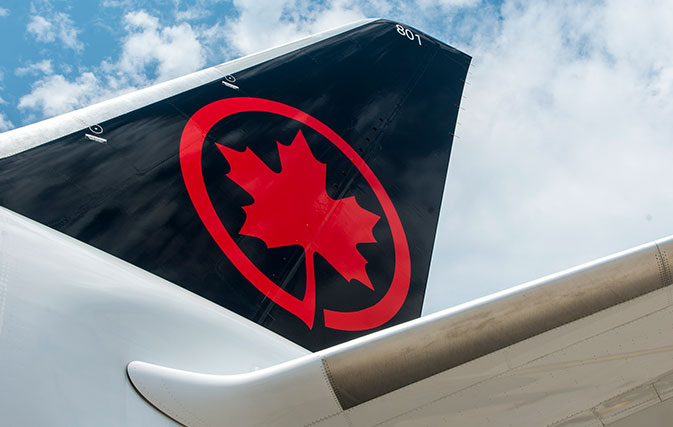MONTREAL — Air Canada is sharing its Q1 2025 results, along with feedback on key booking trends including transborder traffic.
The airline reported operating revenues of $5.2 billion for the first quarter of 2025, 1% lower year over year. There was an operating loss of $108 million.
“Our first quarter 2025 results show Air Canada is effectively managing through a turbulent period,” said Air Canadaʻs President and CEO, Michael Rousseau.
“Although advance ticket sales grew in line with our expectations in the period, we anticipate market conditions will remain unsteady with an uncertain economic outlook. In response, we are prudently moderating our expectations and concentrating on controllable factors such as cost management and strategic capacity adjustments to ensure strong performance in key financial metrics,” said Rousseau.
“We are encouraged that despite some shifts in certain markets, overall demand trends remain steady,” he added.
“FOCUSED ON CONTROLLING WHAT WE CAN CONTROL”
Rousseau doubled down on his talking points in this morningʻs Q1 earnings call.
Amid a somewhat turbulent economic climate and the trade war, “weʻre focused on controlling what we can control,” he said, adding that “uncertainty was the theme of the first quarter.”
Rousseau acknowledged the decline in interest among Canadians for travel to the U.S., and said Air Canada is experiencing booking declines on transborder routes in the low teens over the next six months.
“But overall booking trends remain stable,” he said.
Air Canada is moderating some of its expectations and long-term guidance for 2025, with adjusted earnings for the year now forecast at between $3.2 billion and $3.6 billion, down slightly from the $3.4 billion – $3.8 billion announced earlier.
“We are effectively managing uncertainty through a solid long term plan,” said Rousseau.
“OVERALL RESILIENT DEMAND TREND”
Mark Galardo, Air Canada’s VP Revenue and Network Planning and President, Cargo, said that while Air Canada “witnessed progressive weakness of demand” due to macro-economic concerns and trade tensions in Q1, mostly impacting transborder travel and particularly in March, “we are encouraged by recent bookings. Weʻre already almost halfway into Q2 and we’re close to 80% of our total forecast for Q2. We see an overall resilient demand trend.”
While U.S.-Canada traffic is down, the carrier has seen favourable demand shifts to Europe, domestic Canada and parts of Asia, he said, adding that “the transborder market typically books closer in.”
During the Q&A, airline execs spoke to the recent launch of Air Canadaʻs 2025-26 winter sun season schedule, with an 16% capacity increase to Latin America. Thereʻs a push to “double down on Cancun” as Air Canada adds more flights to Mexicoʻs top resort spot and beyond, to destinations including Guadalajara and Monterrey: “We like the Mexico market, and the counter-seasonality of that market.”
And what if thereʻs a sudden ramp-up in demand for transborder travel, depending on which way the trade war winds are blowing? Air Canada said “it has a lot of flexibility to reallocate capacity,” from sun destinations and other markets.
The Air Canada team was also asked about Onex selling minority stakes in WestJet to Delta Air Lines and Korean Airlines.
“We all know Delta has a strategy of acquiring minority interests in airlines around the world. Weʻll monitor it,” said Rousseau.

